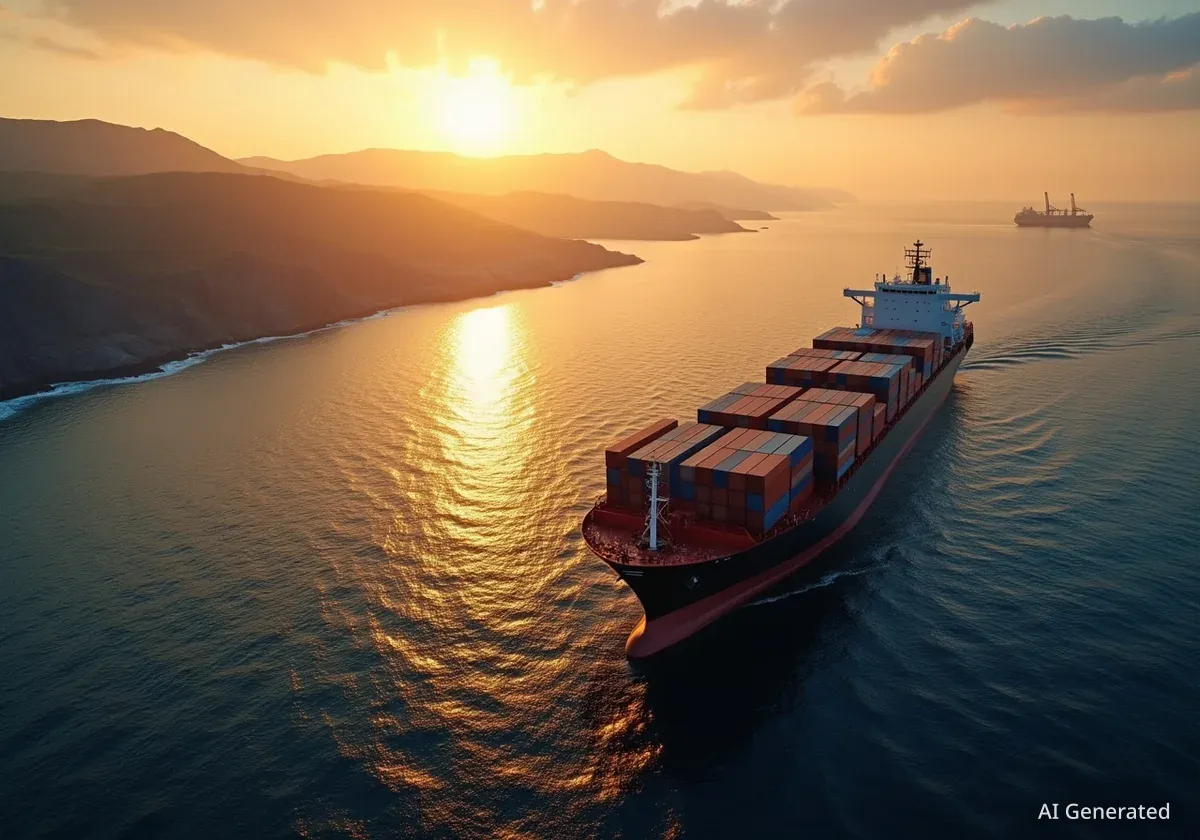China is systematically expanding its global economic and strategic footprint through a multi-faceted approach involving logistics, digital infrastructure, and resource acquisition. By securing control over key international ports, building undersea data cables, and monopolizing critical mineral resources, the country is creating an integrated network that extends its influence far beyond its own borders.
Key Takeaways
- China has gained control over strategic ports like Piraeus in Greece and Hambantota in Sri Lanka, reshaping global shipping routes.
- Through its "Digital Silk Road," China is building undersea cables and a satellite network, increasing its influence over global data flows.
- Chinese companies now control a significant portion of the world's supply of critical minerals like cobalt and lithium, essential for electric vehicles and batteries.
- This expansion is creating deep economic dependencies, making it difficult for some European nations to align with U.S. sanctions against Chinese industries.
Redefining Global Logistics Networks
China has made significant investments in global logistics, fundamentally altering traditional trade routes. The strategy aims to create more efficient and direct pathways for Chinese goods to reach international markets.
The Piraeus Port Example
A primary example is the Port of Piraeus in Greece, where the state-owned COSCO Shipping, the world's third-largest container shipping company, holds a majority stake. After significant investment transformed Piraeus into a high-tech smart port, it became a major gateway for Asian cargo into Europe.
Previously, goods would travel through the Suez Canal to ports like Rotterdam in the Netherlands before being distributed. Now, cargo is unloaded at Piraeus and transported inland via the "China-Europe International Train," a rail network also built with Chinese capital. According to reports, this new route has reduced logistics time to markets in Hungary, Austria, and the Czech Republic by more than a week.
The 'String of Pearls' Strategy
This port-centric strategy is part of a broader, two-decade-long initiative known as the "String of Pearls." The goal is to secure key maritime chokepoints from the South China Sea to Europe. Key locations include:
- Gwadar Port, Pakistan: Provides a strategic outlet to the Indian Ocean.
- Kyaukphyu Port, Myanmar: Allows energy transport to bypass the congested Malacca Strait.
- Hambantota Port, Sri Lanka: Leased to China for 99 years after Sri Lanka was unable to repay its debts.
- Djibouti: Home to China's first overseas military base, established after extensive Chinese investment in the country.
Constructing a Digital Silk Road
Beyond physical logistics, China is extending its influence into the digital realm through its "Digital Silk Road" initiative. This project focuses on building and controlling the infrastructure that underpins global communications, including undersea cables and satellite networks.
More than 99% of all international data traffic travels through a vast network of undersea fiber-optic cables. Chinese companies are now major players in the construction of this critical infrastructure.
"Communication networks are the lifelines of information and data. Controlling them provides a significant strategic advantage in the modern world."
Key Undersea Cable Projects
One significant project is the PEACE (Pakistan and East Africa Connecting Europe) Cable. Owned by Chinese firm Hengtong and constructed by a subsidiary of Huawei, this 15,000-kilometer cable connects Pakistan to France, with landing points in Kenya, Djibouti, and other nations along the Belt and Road Initiative route.
Another project, the South Atlantic Telegraph Cable, is the first to directly link South America and Africa. A Huawei subsidiary is also building this cable with financing from the China Export-Import Bank. By providing digital infrastructure to developing nations, China is positioning itself to have significant influence over their data flows.
Expansion into Space
China's digital ambitions also reach into space with the "Guowang" (National Network) project. This initiative aims to deploy a constellation of over 13,000 low-orbit satellites to create a global high-speed internet service, directly competing with systems like SpaceX's Starlink.
By integrating Guowang with its own BeiDou satellite navigation system, China seeks to build a comprehensive global information network. This could have applications in autonomous driving, remote logistics, and precision military systems.
Securing Critical Raw Materials
A crucial component of China's global strategy is securing long-term access to essential raw materials, particularly those required for high-tech and green industries. Through infrastructure-for-resources deals in Africa and South America, China has gained a dominant position in the mining of several key minerals.
Dominance in Key Minerals
- Cobalt: Chinese companies own 15 of the 19 cobalt mines in the Democratic Republic of the Congo. The DRC holds approximately 70% of the world's known cobalt reserves.
- Lithium: China has established significant control over lithium extraction in the "Lithium Triangle" of Chile, Argentina, and Bolivia.
Cobalt and lithium are vital components for manufacturing batteries used in electric vehicles (EVs) and consumer electronics. As countries in Europe and North America transition to EVs, they are finding their supply chains for core components are heavily dependent on China.
This control is often a result of the Belt and Road Initiative, where developing nations take on large debts to fund infrastructure projects. When unable to repay, these countries sometimes cede control of strategic assets like ports or grant long-term mining rights.
Economic Influence Creates Political Divisions
China's deep integration into the global economy is creating political challenges for Western alliances. The economic dependence of some European industries on China makes it difficult to form a unified front on trade issues, such as sanctions on Chinese electric vehicles.
For example, German automakers rely on the Chinese market for 30% to 40% of their total sales, with Volkswagen considering China its single largest market. Similarly, French luxury brands count Chinese consumers among their most important customers.
Spain has also shown reluctance to join U.S.-led sanctions after China proposed making the country a major hub for its electric vehicle manufacturing in Europe. This economic leverage allows China to influence policy decisions in other nations, effectively weakening coordinated responses from Western countries.
The interconnected network of ports, railways, digital cables, and resource supply chains has created a global industrial system with China at its center. This development suggests that isolating specific sectors like semiconductors through sanctions may be insufficient to counter a strategy that is woven into the fabric of the global economy.





